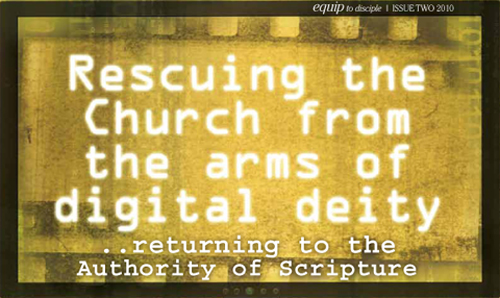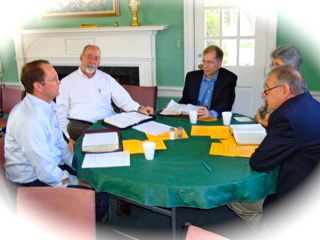Editor’s note: This book review was written by Brook Breed, member of the Women’s Advisory Sub-Committee (WASC).
By Jerram Barrs, founder and resident scholar of the Francis Schaeffer Institute and professor of Christian Studies and Contemporary Culture at Covenant Theological Seminary, St. Louis, MO – Reviewed by WASC member Brook Breed
Jerram Barrs is a masterful storyteller, bringing the lives and times of different biblical women alive to the reader. In each chapter, Jerram relates the historical setting and cultural practices to present-day practices to help the reader identify more closely with the biblical women. He makes practical application from their lives that match our mindset and temptations today. Showing how God used these women in spite of their fears, manipulations, sinfulness, and faithlessness. God’s grace and redemptive plan are revealed through the lives of these women. Of Tamar Jerram writes: “God gave her this place in his grace and love, despite her sin, and honored her as one who was more righteous than Judah, as one who was faithful to her sense of obligation. We are not asked by the Word of God to approve of her deception, her disguise, her acting the part of a prostitute; but we are asked by the Word of God to honor her faithfulness, her readiness to fulfill her obligations, her righteousness.” (page 84)
I felt like I was on a journey looking at the lives of biblical women-those we know by name (as Eve) and those we don’t (“the woman of noble character”). The final chapter, “…we reflect on the image by which God chooses to describe his church-the bride of Christ-and rejoice in the honor that God shows to all women with this title.” (page 11) We see how Jesus ministered and treated the women of His time, setting an example for all to follow. Jerram writes: “He never patronized women or looked down on them; he never regarded them as inferior or spoke slightly of them; instead he showed respect, honor, and grace to women in all his dealings with them.” (page 315).
I highly recommend this book for those who are interested in a personal or group study of key women in both the Old and New Testaments of the Bible. For those of you who attended the 2010 Women’s Leadership Training Conference, this book is a continuation of the rich biblical teaching we received from Professor Barrs!
** For more on Francis Schaeffer, read Charles Dunahoo’s recent book review, Francis Schaeffer, A Mind and Heart for God.



 2010 General Assembly Women’s Program and Activities
2010 General Assembly Women’s Program and Activities
 I don’t mean to sound overdramatic, but we simply cannot bury our heads in our X-Boxes. As numerous studies attest, the relentless acquisition of cutting edge digital technology now lords over the Western cultural heart, extending across ethnic, gender, economic, and social boundaries. We must pause between texts, emails, and Seinfeld episodes to face the fact that technological lordship vies for the worship of God’s people in ourchurches. For too many, the knee is already bowed.
I don’t mean to sound overdramatic, but we simply cannot bury our heads in our X-Boxes. As numerous studies attest, the relentless acquisition of cutting edge digital technology now lords over the Western cultural heart, extending across ethnic, gender, economic, and social boundaries. We must pause between texts, emails, and Seinfeld episodes to face the fact that technological lordship vies for the worship of God’s people in ourchurches. For too many, the knee is already bowed. actually seek to preach the Bible? Recently in a worship service I attended at a Reformed church, which staunchly defends the inerrancy and sufficiency of Scripture, the preacher apologized two times for reading the Bible to the congregation. He was serious. The very Word he heralded as both authoritative and relevant required pardon from the congregation for its reading! Why? Perhaps because he knows his Blackberry and YouTube crowd might get bored listening to biblical texts. Or perhaps because he subconsciously doubts the power of the Word of God to do what God claims – to accomplish its purpose even in the heart of one in the embrace of the digital goddess. Whatever the case, in one tragic moment, he affirmed what many media-drunk churchgoers have come to believe: that public reading of Scripture, which the Apostle Paul alerts Timothy not to neglect (1 Tim 4:13), is a necessary boredom to endure; that preaching Scripture is an irrelevant part of our church experience.
actually seek to preach the Bible? Recently in a worship service I attended at a Reformed church, which staunchly defends the inerrancy and sufficiency of Scripture, the preacher apologized two times for reading the Bible to the congregation. He was serious. The very Word he heralded as both authoritative and relevant required pardon from the congregation for its reading! Why? Perhaps because he knows his Blackberry and YouTube crowd might get bored listening to biblical texts. Or perhaps because he subconsciously doubts the power of the Word of God to do what God claims – to accomplish its purpose even in the heart of one in the embrace of the digital goddess. Whatever the case, in one tragic moment, he affirmed what many media-drunk churchgoers have come to believe: that public reading of Scripture, which the Apostle Paul alerts Timothy not to neglect (1 Tim 4:13), is a necessary boredom to endure; that preaching Scripture is an irrelevant part of our church experience. At our church we’re on our fifth cycle of the Covenant Story Seminar. About half the congregation has taken it. We like to think of CSS as establishing a Christian Education baseline after which other courses become more useful. We want people to view the grand panorama of God’s grace, to thrill at the discovery of how an event in Genesis or Job enriches what first appears to be a throw-away comment by John or Paul. It’s when they see that God is serious about ushering in a new kingdom that they become serious about personal and cultural changes to be made. Covenant Story participants come to realize that Jesus is far more than a personal friend. He’s the King of glory calling them to conquer along with him all that stands in the way of mercy and justice.
At our church we’re on our fifth cycle of the Covenant Story Seminar. About half the congregation has taken it. We like to think of CSS as establishing a Christian Education baseline after which other courses become more useful. We want people to view the grand panorama of God’s grace, to thrill at the discovery of how an event in Genesis or Job enriches what first appears to be a throw-away comment by John or Paul. It’s when they see that God is serious about ushering in a new kingdom that they become serious about personal and cultural changes to be made. Covenant Story participants come to realize that Jesus is far more than a personal friend. He’s the King of glory calling them to conquer along with him all that stands in the way of mercy and justice.